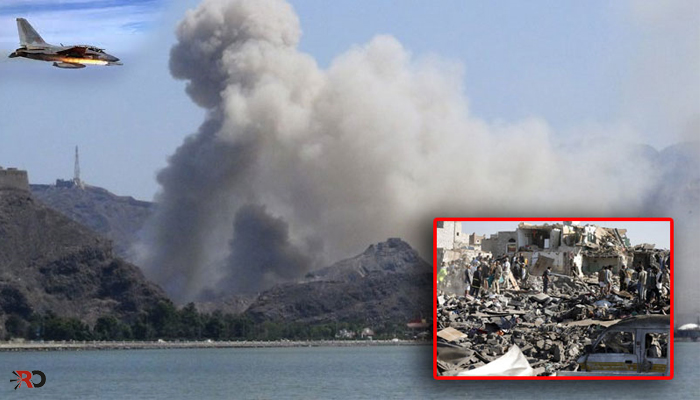By Muhammed Ubaid
As the struggle in Yemen turns into a protracted battle, the Yemeni government announced 24th May that the ousted president Abd-Rabbu Mansour Hadi would not be attending UN peace talks in Geneva due to the Houthis not meeting the conditions set by Hadi. This is on the backdrop of a deepening crisis in Yemen which has seen the death toll approaching 2000 [1]. With the intervention of both regional and international players, the breakdown of these peace talks demonstrates the complicated nature of the crisis with little end in sight.
The eruption of the Arab spring back in 2011 saw many take to the streets against the brutal rule of long term president Ali Abdullah Saleh. After a protracted struggle, where Saleh made many promises which he never stuck to, he eventually stepped aside, only to hand power to his own crony Abd-Rabbu Mansour Hadi, who was the Vice President of Yemen at the time. This frustrated the Houthis, who since the beginning of the 21st century had been protesting against their marginalisation, despite constituting 40% of the country’s population. Like Saleh, Abd-Rabbu Mansour Hadi planned to maintain the status quo with even more false promises. The Houthis realising this, and ensuring they were not duped again, took the protest to the capital city, Sanaa, and managed to take their demand of real change to the presidential palace, only to find Hadi to have resigned [2] and fled to Saudi Arabia. The military has since been split between the two sides, but ex-president Saleh and his loyalists sided with the Houthis [3]. It should therefore be clear, that the crisis in Yemen is between the Houthis who are demanding real change in the country after years of persecution and Hadi, who is trying to keep the original system in place. [pullquote align=”left” color=”” class=”” cite=”” link=””]It should therefore be clear, that the crisis in Yemen is between the Houthis who are demanding real change in the country after years of persecution and Hadi, who is trying to keep the original system in place.[/pullquote]
With North, South and the capital of Yemen under their control, it is clear that the Houthis are in a powerful position. This is why Hadi refused to partake in the Geneva conference as he demanded that the Houthis comply with UN Security Council Resolution 2216 which demands that they give up the territory they seized and surrender weapons they took from the army [4]. This has been exploited by Britain who has been known to support Hadi and Saleh before him. America on the other hand has seized this opportunity in order to wrestle power away from Britain by supporting the Houthi’s expansion in the country. Senior US intelligence official Michael Vickers made clear that intelligence had been provided to the Houthis for a long time [5]. The US previously called for the removal of Saleh during the Arab Spring, despite the position of Britain in favour of Saleh. However, the US cannot provide full support to the Houthis as they have witnessed the vulnerabilities of the movement. Despite obtaining control over large areas, the Houthis repeatedly call for negotiations and elections, despite controlling more territory than the government. The Houthis also began to work with Saleh, despite living under his tyrannical rule for decades. Saudi airstrikes in the country aid the US position as it ensured no faction could take advantage of the Houthi vulnerabilities, despite possessing most of the country’s territory.
Iran has for a long exploited its links with Shi’ah minority within the Middle East to exert its regional influence. Despite denial of their involvement, Iran have been reported to have provided weapons and training to Houthi rebels for a number of years either directly or through its proxy – Hizbollah [6]. Iranian interests remain purely nationalistic and its rapprochement with the US in recent weeks shows that Iran is complicit with US policy in the region. Saudi Arabia on the other hand is attempting to act against this Iranian influence by acting against the Houthis. It is afraid of the conflict spilling over the Saudi border and parties such as Al Qaeda within Yemen obtaining more ground. The sensitive nature of Saudi public opinion and the significantly large Shi’ah population have forced Saudi to take a position in Yemen. However, the airstrikes are acting only to restrict the movements of the Houthis as opposed to eradicating them. Current Saudi airstrikes do nothing but give the US more time to create the right atmosphere for talks.
Whilst on the ground in Yemen the conflict is Houthi vs Hadi, both Saudi and Iran are trying to exploit their links and exert their influence in Yemen. In the background however, this has given the US the opportunity to bring Yemen under its control.
- http://www.reuters.com/article/2015/05/28/us-yemen-security-idUSKBN0OD1GD20150528
- http://english.alarabiya.net/en/News/middle-east/2015/01/22/Yemen-government-offers-resignation.html
- http://english.alarabiya.net/en/perspective/analysis/2014/10/23/Eyeing-return-Yemen-s-ousted-Saleh-helps-Houthis-.html
- http://www.aljazeera.com/news/2015/05/arab-coalition-intensifies-air-strikes-yemen-150523150859582.html
- http://www.al-monitor.com/pulse/originals/2015/01/yemen-houthis-obama-administration.html#ixzz3VX9Ndq7x
- http://www.reuters.com/article/2014/12/15/us-yemen-houthis-iran-insight-idUSKBN0JT17A20141215





